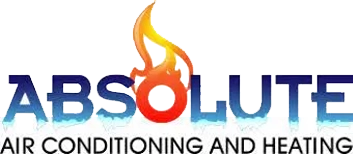Selecting the right heat pump replacement for light commercial spaces is crucial for maintaining comfort and efficiency. Whether you operate a small office, retail store, or other commercial facility, having a reliable heat pump impacts both your energy costs and the comfort of your employees and clients. The process involves more than just picking a unit; it requires careful consideration and expert installation to ensure optimal performance.
Assessing Your Light Commercial Space Needs
Before selecting a heat pump replacement, it’s essential to assess your light commercial space’s needs thoroughly. Each building has unique features and requirements that influence the type of heat pump that will be most effective. Start by evaluating the size of the space. Larger areas will require units with greater capacity to ensure even heating and cooling throughout the premises.
Next, consider the layout and design of your building. Open-plan spaces might need different solutions compared to segmented areas with multiple rooms. Understanding the flow and distribution of air can help determine the best placement for both indoor and outdoor units. Our professionals can perform detailed assessments to identify the optimal setup tailored to your space’s structure.
Usage patterns also play a critical role. Buildings with high foot traffic or spaces that house heat-generating equipment may require heat pumps with specific capabilities. Assessing the peak usage times and variations in heating and cooling needs ensures that the chosen system can maintain comfortable temperatures efficiently. Consulting with our technicians provides insights into the most suitable options for your unique needs.
Types of Heat Pumps Suitable for Light Commercial Spaces
There are several types of heat pumps suitable for light commercial spaces, each offering distinct advantages. Understanding the options available will help in making an informed decision that best fits your requirements.
1. Air Source Heat Pumps: These are the most common and utilize outdoor air to transfer heat into the building. They are relatively easy to install and are effective in moderate climates.
2. Ground Source Heat Pumps: Also known as geothermal heat pumps, these systems leverage the stable temperatures underground. They are highly efficient and offer consistent performance, although the installation process is more complex.
3. Water Source Heat Pumps: These systems use water bodies such as lakes or aquifers to absorb and release heat. They can be very efficient and are suitable for spaces located near these natural resources.
4. Ductless Mini-Split Heat Pumps: Ideal for buildings without existing ductwork, these units can be installed in individual rooms or zones, offering flexibility and ease of installation.
Our professionals can help you evaluate these options, providing detailed recommendations based on your space’s specific requirements. This ensures that you choose a heat pump that offers optimum efficiency and performance for your light commercial facility.
Factors to Consider When Choosing a Heat Pump Replacement
When choosing a heat pump replacement for light commercial spaces, several factors contribute to making the best decision. These considerations ensure the new system meets your space’s demands and operates efficiently.
1. Energy Efficiency: Look for heat pumps with high Seasonal Energy Efficiency Ratio (SEER) and Heating Seasonal Performance Factor (HSPF) ratings. Higher ratings mean better efficiency, resulting in lower energy costs over time.
2. Size and Capacity: The heat pump must match the size and heating/cooling demands of your commercial space. Oversized or undersized units can lead to inefficiencies and unnecessary wear and tear. Our professionals can perform calculations to determine the correct size for your needs.
3. Climate Suitability: Consider your local climate when selecting a heat pump. Some models perform better in certain conditions. For example, air source heat pumps might be more efficient in mild climates, while ground source heat pumps can provide consistent performance in various conditions.
4. Noise Levels: Since the system will operate in a commercial environment, noise levels are a crucial factor. Choose models designed for quieter operation to maintain a comfortable working environment for employees and customers.
5. Reliability and Warranty: Opt for heat pump models from reputable manufacturers that offer solid warranties. This ensures you have support if any issues arise, providing peace of mind and protecting your investment.
The Installation and Maintenance Process
Successful heat pump installation and maintenance are essential for optimal performance and longevity. Proper installation begins with preparing the site. Our professionals ensure the location is suitable, with enough space and proper support for both indoor and outdoor units.
1. Installation Steps:
- Mounting the Units: Indoor units are mounted securely on walls or ceilings, while outdoor units are placed on stable platforms, ensuring both are level and have adequate airflow.
- Connecting Components: Refrigerant lines, electrical wiring, and drainage systems are connected. Our technicians use high-quality materials to ensure durability and prevent leaks.
- System Testing: Once the system is set up, comprehensive testing ensures everything functions correctly. Our technicians check for proper refrigerant levels, electrical connections, and airflow.
2. Maintenance Guidelines:
- Regular Inspections: Schedule periodic checks to identify and address potential issues early. Our professionals can spot wear and tear, clean components, and ensure everything runs smoothly.
- Filter Replacement: Regularly change filters to maintain indoor air quality and system efficiency. Dirty filters can restrict airflow and reduce performance.
- Clearing Debris: Keep the outdoor unit free from obstructions like leaves and debris to prevent airflow issues.
By following these steps, the heat pump system will continue to operate efficiently, providing reliable heating and cooling for your commercial space.
Conclusion
Choosing the right heat pump replacement for light commercial spaces involves a detailed assessment of needs, a comprehensive understanding of available options, and careful consideration of key factors such as energy efficiency, capacity, climate suitability, and noise levels. Reliability and proper warranties further enhance your peace of mind.
The installation and maintenance process is equally important, ensuring the system is set up correctly and remains in top condition through regular checks and upkeep. When these elements are handled by experienced professionals, you can be confident that your investment will provide long-term comfort and efficiency.
For expert heat pump replacement in Palm Desert, contact Absolute Air Conditioning & Heating. Our skilled team is committed to delivering top-quality HVAC services tailored to the unique requirements of your commercial space.





